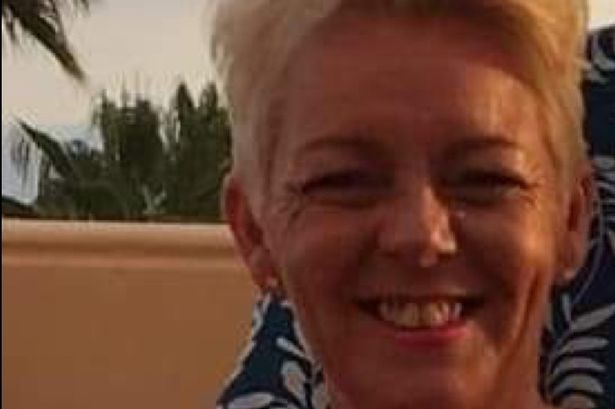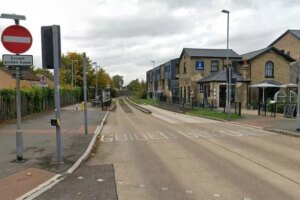
A man admitted to police that he had killed Lisa Fraser in Pembroke Dock, but was found hanged in a prison cell two weeks later. An inquest into the death of Mrs Fraser has now been opened
The body of Lisa Fraser was found in Pembroke Dock in May 2022(Image: Dyfed-Powys Police)
An inquest has been opened into the death of a 52-year-old woman who was allegedly murdered in her own home. Lisa Fraser was found dead at her home on Military Road in Pembroke Dock, Pembrokeshire, in May 2022.
Matthew Harris from Barn Court in Haverfordwest was arrested moments after leaving her house and later charged with murder but was found hanged in his prison cell at HMP Long Lartin in Worcestershire on May 27, 2022. He died the following day aged 41.
An inquest into Mrs Fraser’s death was opened by the assistant coroner for Pembrokeshire and Carmarthenshire, Paul Bennett, at Pembrokeshire County Hall in Haverfordwest on Monday morning (September 1). Don’t miss a court report by signing up to our crime newsletter here.
Police Constable (PC) James Langford from Dyfed-Powys Police told the hearing that a post-mortem carried out at the University Hospital of Wales in Cardiff found that Mrs Fraser died from “multiple sharp force injuries including a cut throat”. She was pronounced dead at the scene at 8.52am on the morning of Friday, May 13, 2022.
The court heard there had been reports earlier that same morning, at around 6.40am, of a man matching Harris’ description causing criminal damage to a property and a vehicle in the Neyland area, but that officers had been unable to find him.
Detective Sergeant (DS) Jamie Hughes then said that at 8am Pembroke Dock police station received a call from a man who had been threatened on Military Road by another man who had “thrust a knife” towards the open window of his car and said “you’re going to die”. The man reversed his car and drove away from the scene to contact police.
DS Hughes said firearms officers were then dispatched to the road to perform a welfare check. However, when police constables arrived in the street Harris came out of 36 Military Road. DS Hughes explained that he came out with his hands up and said he needed to go to jail before putting his hands behind his back.
Harris then told officers: “I killed a Nazi. I’ve just killed a Nazi in there.” When Harris was then arrested shortly after on suspicion of murder, he replied: “Guilty as charged.”
PC Simon Hayward, who was the arresting officer, said that Harris then proceeded to tell officers he had left “exhibits” for them in the house. He said Harris told them: “I have left things in there for you boys as evidence.”
The inquest also heard from James Jarrod, a friend of Harris’ dad. He said Harris had visited him at his home the day before the alleged murder wearing a balaclava.
Harris told Mr Jarrod that his mum died that morning of a “massive heart attack”, but when he phoned around he discovered she was still alive.
The inquest heard that Mrs Fraser was born in Kent on July 11, 1969, and had moved to Pembrokeshire in 2003 with her husband, a self-employed carpenter, and her three children. She had worked at several care homes in the area before becoming a cleaner in 2021.
The inquest continues.
Why we cover inquests – and why it’s so important that we do
As painful as these proceedings are for those who have lost a loved one the lessons that can be learned from inquests can go a long way to saving others’ lives.
The press has a legal right to attend inquests and has a responsibility to report on them as part of their duty to uphold the principle of open justice.
It’s a journalist’s duty to make sure the public understands the reasons why someone has died and to make sure their deaths are not kept secret. An inquest report can also clear up any rumours or suspicion surrounding a person’s death.
But, most importantly of all, an inquest report can draw attention to circumstances which may stop further deaths from happening.
Should journalists shy away from attending inquests then an entire arm of the judicial system is not held to account.
Inquests can often prompt a wider discussion on serious issues, the most recent of these being mental health and suicide.
Editors actively ask and encourage reporters to speak to the family and friends of a person who is the subject of an inquest. Their contributions help us create a clearer picture of the person who died and also provides the opportunity to pay tribute to their loved one.
Often families do not wish to speak to the press and of course that decision has to be respected. However, as has been seen by many powerful media campaigns, the input of a person’s family and friends can make all the difference in helping to save others.
Without the attendance of the press at inquests questions will remain unanswered and lives will be lost.





